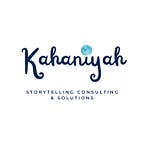Do children need another test-prep app? Or just schools that can house their imagination?
I was reading Ken Robinson’s “Creative Schools” recently. It’s a book that has profoundly influenced me as am sure it has many people who are deeply interested in the field of education. Here is a link to his TED Talk
Educational Reform has been part of the agenda for most world leaders given the power Education has in influencing change in the minds and hearts of people. It’s a business imperative after all. But what’s even more important is that Education is a deeply personal issue which is why most of us have deep beliefs and views about the sector. And why many entrepreneurs jump into solving the seemingly impossible problem of our country’s education system.
But what problems are they really solving?
Formal Education is made up of three pillars:
- Curriculum
- Teaching
- Assessment
With the increasing movement towards standardization of education, more emphasis is being placed on Mathematics, STEM disciplines and literacy while there is more skepticism about personal expression and learning by discovery and imaginative play.
In terms of assessment, formal, written examinations and extensive multiple choice tests that can be easily codified and processed have become the norm. And teacher evaluation, peer assessment, open book tests have been relegated as the not-to-be-seen back benchers in the world of assessment.
A Picture Story of India’s Education start-ups:
Data from Tracxn reveals that there are over 1,400 Education startups in India now, over 78% of them started in just the last four years. If one takes a brief look at their business models or the sub-segments of Education they cater to, this is what it reveals:
The major problems being solved by the new Education companies of today are around technology, test-preparation, online courses and tutoring. Most of them are attacking the fundamental pillar of Assessment. Very few of them are tackling the problem of Curriculum and even lesser number of them are attacking the core area of Teaching.
Let’s step back from the numbers and see what the words say. Let’s look at the text analysis of the brief two liner descriptions the companies use to explain themselves. (the text data of the business model description of all the companies have been analyzed with Alchemy)
The most repeated words in their business model descriptions include:
- mobile app
- online platform
- school management
- online courses
- online marketplace
- online training courses
What does this tell us?
Majority of the Education startups today are focusing on providing information online and finding a way to standardize assessments. The same pillars again. Assessments followed by Curriculum. Teaching lagging behind.
You may argue that teaching is the job of traditional schools and initiatives such as “Teach for India” are expected to help solve India’s ability to attract and retain good teachers. And technology is an enabler for teachers.
But, is there a more fundamental problem?
Imagine a school which provides a place for the so called “at-risk” students. Gives them a chance to explore their creativity and entrepreneurship skills. Where the students learn real world skills by actually building electric cars and driving them, on the road to their own freedom. Well, we don’t need to really imagine. This is a real initiative calledMinddrive in Kansas that worked wonders with children who had been written off from the rule-book of standardized assessments and achievements.
Across India, we see such brilliant pockets of excellence, in schools, in individual teachers, in organizations that are striving to create a more educated and inclusive India. Is it time for the brilliant minds of our country to participate more in such initiatives rather than striving towards more standardization?
After all, what do we see in the future?
- Are schools of the future in danger of just becoming certification bodies if the Ed-Tech platforms solve the real learning needs?
- Can unsupervised, “hole-in-the-wall” learning make traditional schools and teachers — redundant?
- Or despite everything else, will the “creative teacher” always remain the one who can ignite a spark in the minds of children and help them find their own mindspace in the dizzying world of tomorrow?
Would love to hear your thoughts and views.
Debleena Roy is an impact investor at Unitus Seed Fund, the leading impact venture fund in India.
More info http://usf.vc
